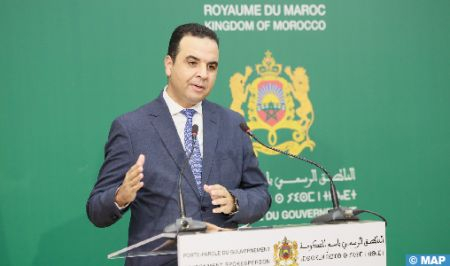Gov’t Council Approves Bill for Direct Social Assistance Program
The Council of Government, convened on Thursday under the chairmanship of the Head of Government Aziz Akhannouch, adopted draft law no. 58.23 on the direct social assistance program, taking into consideration the observations made. Presented by Mustapha Baïtas, Minister Delegate to the Head of Government in charge of Relations with Parliament and Government Spokesman, the bill is part of the Kingdom’s sustained development, driven by major projects and reforms aimed at consolidating the social and development model and the social protection project initiated by HM King Mohammed VI. This bill, which comes after the effective implementation of the first part of the social protection project concerning the generalization of compulsory basic health insurance, and in response to the High Directions contained in HM the King’s Speech to Parliament, in which the Sovereign stressed the need to operationalize this program before the end of the year, paves the way for the effective launch of this program, said Baïtas during a press briefing at the end of the Council’s meeting. The direct social assistance program, which aims to apply certain provisions of the framework law on social protection, represents a significant opportunity to reevaluate the state’s social policy and establish priorities, the Minister continued, explaining that the State will shift from supporting supply to supporting demand through direct financial assistance to families, in line with the High Royal Vision. The first chapter of the bill comprises a series of provisions that set out the components of the direct social assistance program and the conditions for benefiting from it. The bill provides for two types of assistance, including one for protection against child-related risks, which will benefit families with children under the age of 21 and involves a lump-sum allowance and additional assistance. The second type of aid is the lump-sum allocation, which will benefit families with no children or with children over the age of 21, particularly those living in poverty or precariousness or facing risks linked to old age. Baïtas noted that this chapter of the bill sets out the conditions for benefiting from these two types of aid. This text includes certain rules to prevent beneficiaries from receiving assistance from this bill and other family allocations granted in accordance with other legislative and organic texts simultaneously. The second chapter of the bill outlines the procedure for benefiting from the direct social assistance program, referring to another organic text to lay down the necessary procedures for applying for assistance and verifying whether families are eligible to receive it, Baïtas concluded.

